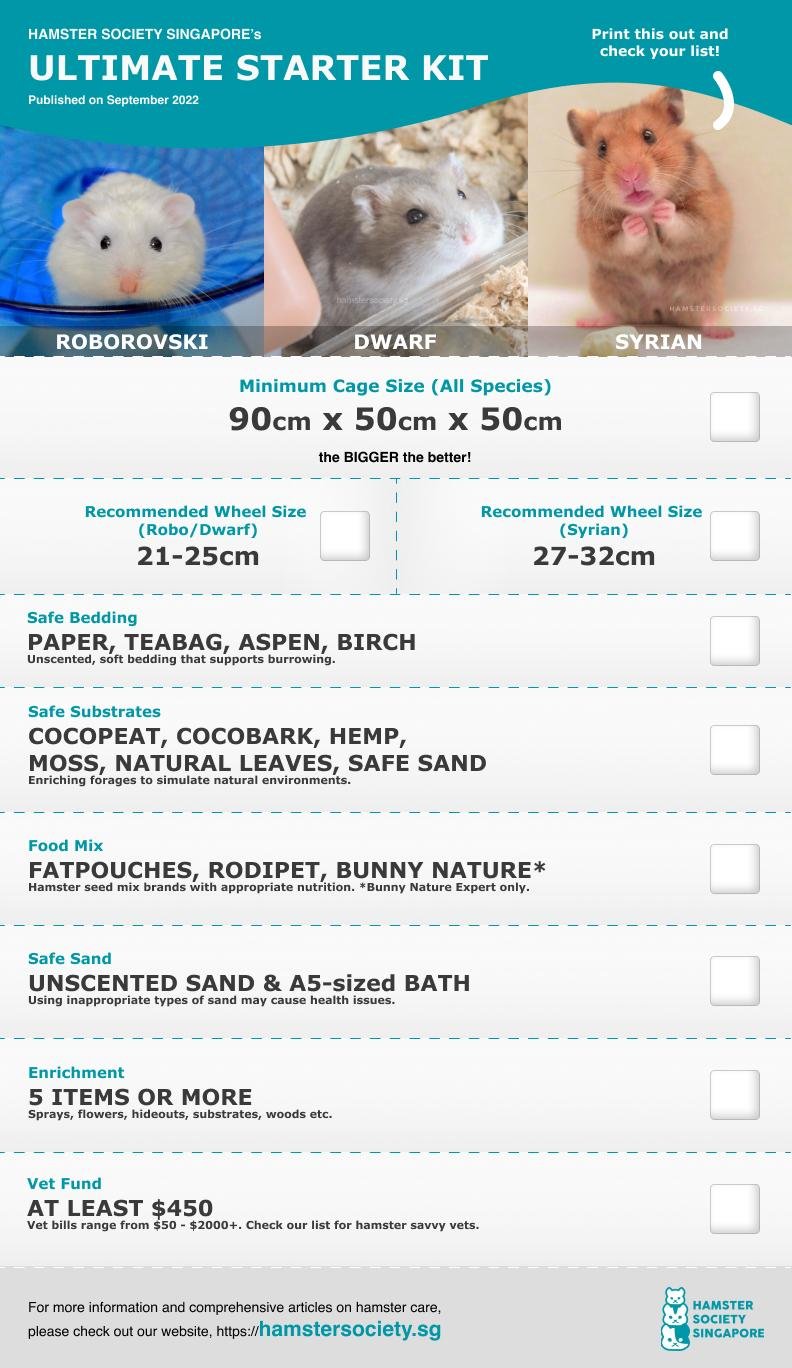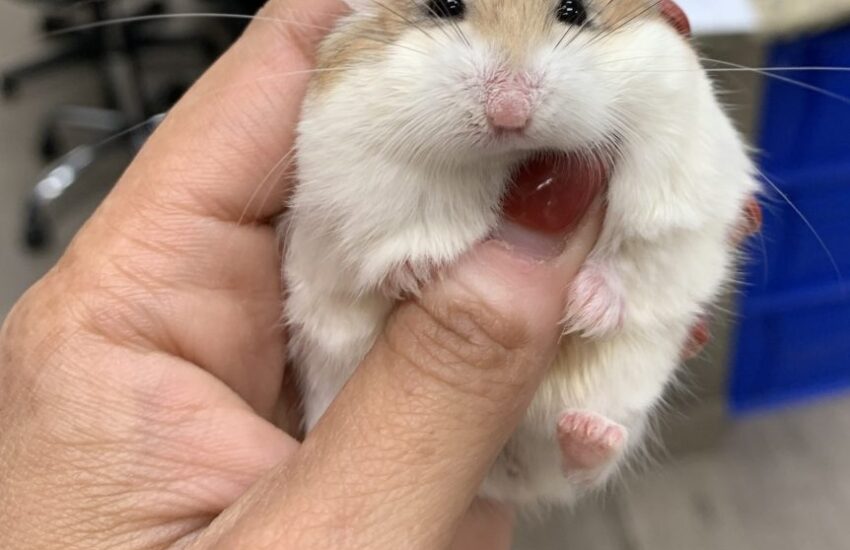Hamster Age-Appropriate Caring
Understanding Your Hamster’s Age
Caring for your hamster properly means understanding its life stages. Hamsters typically live between 2 to 3 years, so it’s crucial to adjust their care according to their age. Younger hamsters are more active and playful, while older hamsters may require specific care due to health issues or decreased activity levels. Age-appropriate hamster care ensures they live a healthy, happy life from weaning through their golden years.

Caring for Baby Hamsters
Baby hamsters, or pups, are born blind and hairless and rely heavily on their mother for warmth and nourishment. If you’re caring for a pup, ensure they have a clean, warm environment. They begin to wean by about 3 weeks old. At this stage, introduce solid food gradually, focusing on soft options that are easy to chew. An appropriate diet for baby hamsters includes mashed vegetables, soft seeds, and special hamster pellets, which you can find in pet stores. Always keep their living space tidy to prevent any health issues.
Young Hamster Care
From weaning to about six months, young hamsters are very active and often love to explore. During this stage, ensure they have plenty of exercise options like tunnels, wheels, and chew toys. It’s also a critical time for socialization; gentle handling will help your hamster become accustomed to human interaction. Feeding a balanced diet rich in protein and fiber, with occasional treats, is vital for their development and energy levels. Remember, keeping their habitat clean and stimulating will ensure they grow strong and healthy.
Adult Hamster Care
As hamsters reach adulthood, which is typically around six months to two years, their care needs slightly shift. Adult hamsters tend to be more independent but require continued interaction and mental stimulation to prevent boredom. Their diet should consist of high-quality pellets, along with fresh fruits and vegetables, but be cautious about portions. Additionally, watch for signs of obesity, as hamsters are prone to it if overfed. A well-maintained habitat with ample space for activities is essential for their health.
Identifying Signs of Aging
As your hamster ages, you may notice changes in behavior and health. Recognizing these signs is vital for making adjustments to their care. Older hamsters might become less active, develop mobility issues, or have changes in their grooming habits. Monitoring their eating and drinking habits is equally important, as a decrease could signify health concerns. Regular veterinary check-ups can help detect underlying issues earlier, ensuring you provide the best age-appropriate care.
Changes in Activity Levels
Reduced activity is common in older hamsters. You may find them spending more time resting or showing less interest in play. To cater to their changing needs, provide low-impact toys that encourage gentle activity without over-exerting them. Soft bedding is also essential for their comfort, as it eases any pain they might experience from arthritis or similar conditions. Keeping their environment calm and quiet helps reduce stress during this stage of their lives.
Diet Adjustments for Older Hamsters
As hamsters age, their dietary requirements may change. Older hamsters sometimes struggle with chewing hard foods, making it essential to offer softer options. You can include mashed vegetables, soaked pellets, or even specially formulated senior hamster food. Additionally, keep hydration levels up, helping them to stay healthy and hydrated. Monitoring weight is crucial, ensuring they remain at a healthy level while preventing obesity.
Providing Comfort for Senior Hamsters
Senior hamsters often need extra care and comfort. Adjustments like lowering their food and water bowls or providing ramps can facilitate better access to these essentials. Creating a cozy sleeping area with soft bedding will help them feel secure. It’s also essential to ensure their habitat is quiet while avoiding stressors. Regular gentle handling will help maintain their socialization and bond with you during their last years.
Health Care and Veterinary Visits
Routine veterinary visits become even more critical as your hamster ages. Regular check-ups can help catch age-related illnesses early, such as tumors or liver issues. Signs of distress shouldn’t be ignored, especially if you notice changes in eating, sleeping, or grooming habits. Consult your veterinarian about proper care practices, including potential supplements that might improve their quality of life. Remember, proactive healthcare is the best way to ensure your hamster stays happy in their golden years.
Enrichment Activities for Seniors
Keeping a senior hamster mentally stimulated is key to their well-being. Incorporate gentle puzzle toys and tactile surfaces in their environment to spark curiosity without overwhelming them. Scent trails made from treats can encourage them to explore safely without heavy exertion. Regular, quiet handling and lap time can provide comfort and engagement, solidifying your bond in their older age.
Key Takeaways
- Understanding your hamster’s age helps tailor their care effectively.
- Baby and young hamsters need socialization, activity, and proper nutrition.
- As hamsters age, signs of decreased activity and changes in diet should be monitored.
- Always ensure a comfortable environment and regular veterinary check-ups for senior hamsters.
- Engage older hamsters with appropriate mental stimulation and gentle activities.
FAQ
1. What should I feed my baby hamster?
Baby hamsters should be introduced to solid foods gradually after three weeks of age. Start with soft options like mashed vegetables and specially formulated hamster pellets. Ensure that their diet is rich in protein and fiber to support healthy growth and development.
2. How can I tell if my hamster is aging?
Signs of aging in hamsters include decreased activity levels, mobility issues, alteration in grooming habits, and weight changes. Regular observation is crucial to notice any significant changes early and make necessary adjustments to care.
3. What are the best bedding materials for old hamsters?
For older hamsters, opt for soft, absorbent bedding such as shredded paper or aspen shavings to help maintain comfort and cleanliness. This will assist in providing a gentle sleeping environment that supports older hamsters’ often fragile health.
4. How often should I take my hamster to the vet?
For senior hamsters, it’s advisable to schedule veterinary check-ups at least once every six months. Regular visits help monitor their health and catch any problems early, ensuring that they receive appropriate care as they age.
5. Can I give my hamster treats as they age?
Yes, but ensure that treats are healthy and suitable for their diet. Soft, bite-sized treats, such as small pieces of fruit or vegetables, can be a great option. Monitor their overall caloric intake to prevent obesity.
